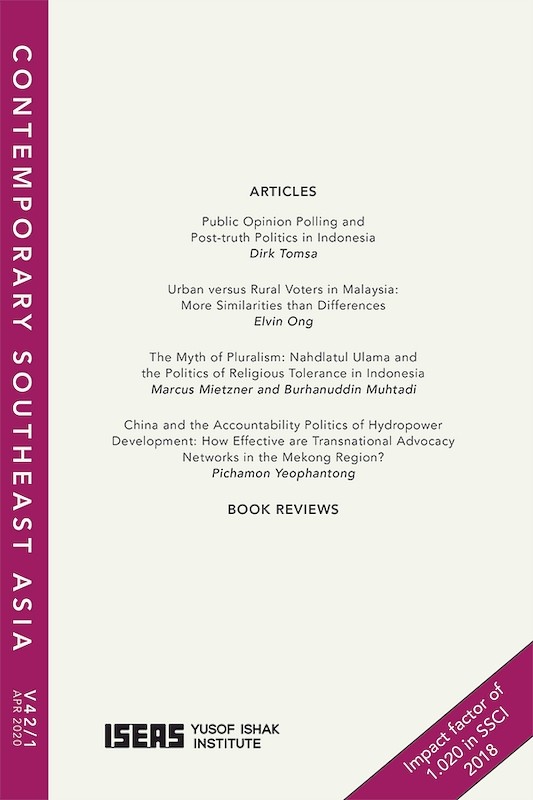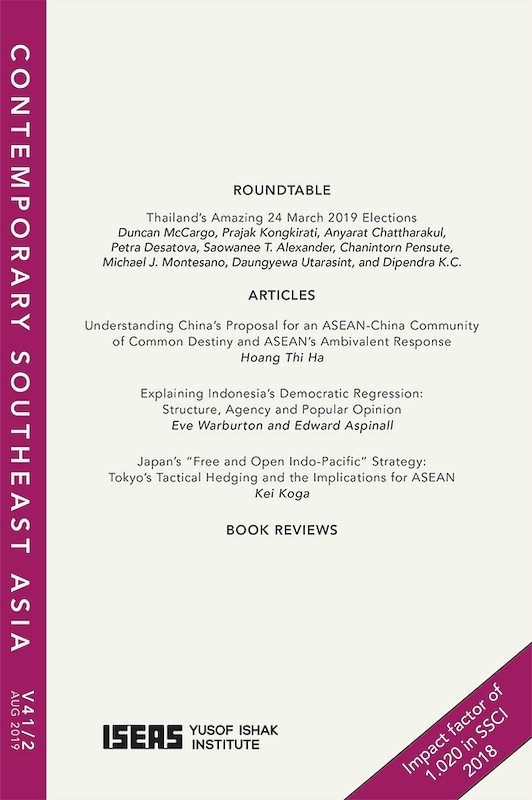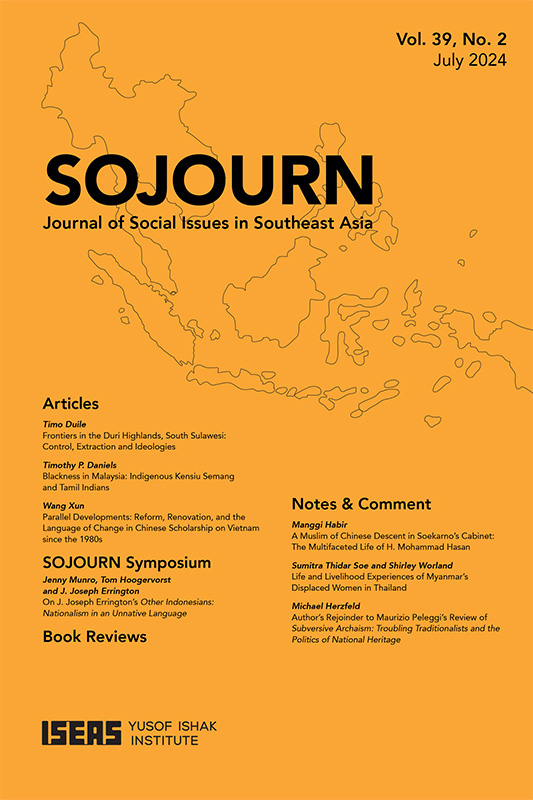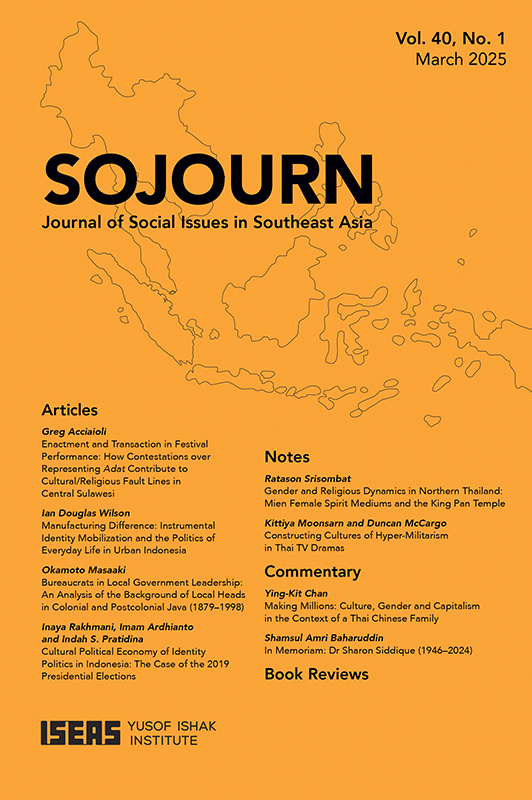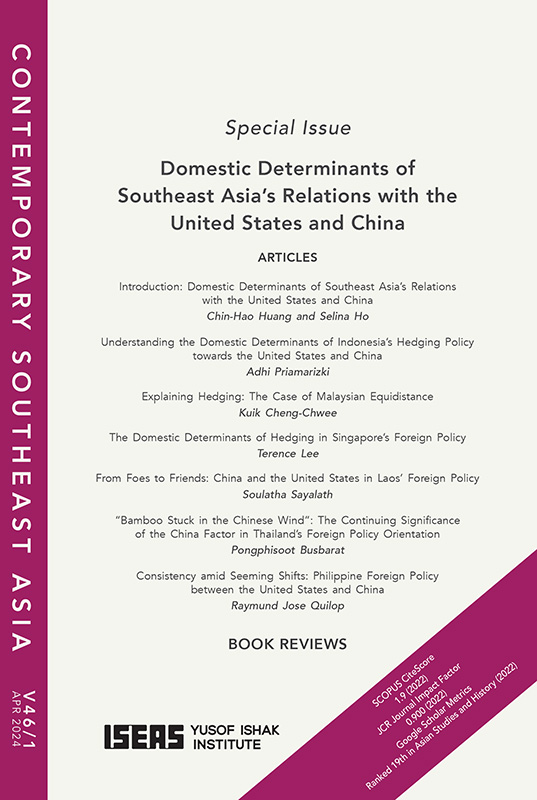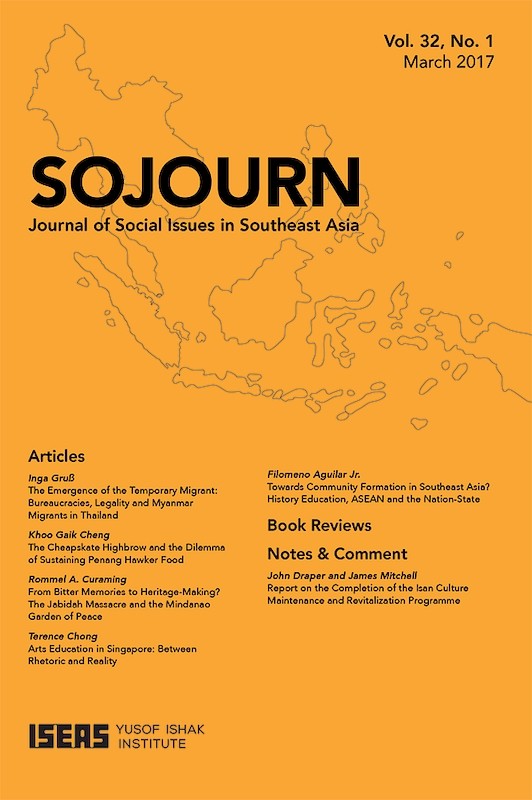Contemporary Southeast Asia Vol. 47/1 (April 2025)
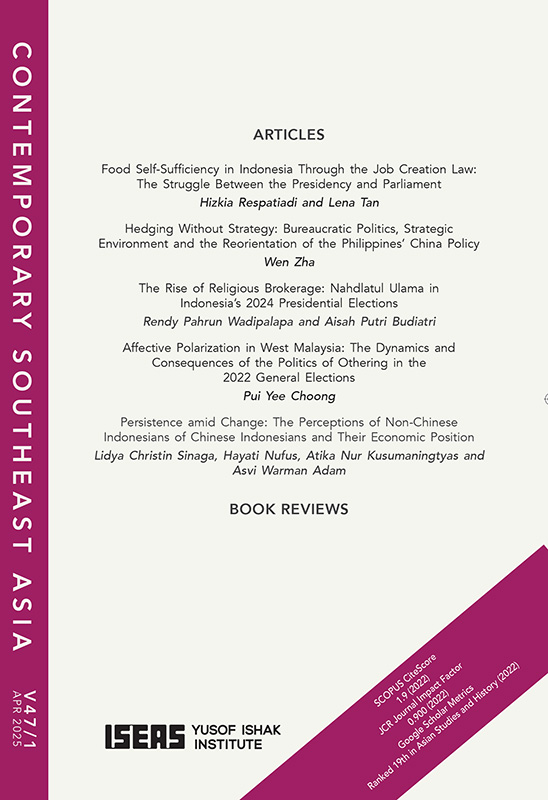
Date of publication:
April 2025
Publisher:
ISEAS – Yusof Ishak Institute
Number of pages:
161
Code:
CS47/1
Soft Cover
ISSN: 0129797X
Contents
-
Contemporary Southeast Asia Vol. 47/1 (April 2025)
[Whole Publication, ISSN: 1793284X] -
Preliminary pages
- ARTICLES
-
1. Food Self-Sufficiency in Indonesia Through the Job Creation Law: The Struggle Between the Presidency and Parliament , by Hizkia Respatiadi, Lena Tan, authors see abstractSince independence, achieving food self-sufficiency through import restrictions has been a constant theme in Indonesian politics. This policy gained renewed importance during the first two decades of the twenty-first century, particularly with the introduction of the so-called Food Law and Farmers Law in the early 2010s. However, a notable shift occurred in 2020 with the implementation of the Job Creation Law (JCL). The existing literature on food self-sufficiency usually attributes political support for import restrictions and domestic production to the financial and electoral benefits politicians and their business associates reap, including graft and public approval. However, such arguments do not address how ideas shape the legislative process. To understand why, this article examines how the Widodo administration’s attempts to change legislation on food self-sufficiency were stymied by political parties and lawmakers, showing that not only ideals but also the legislative branch still has a voice in shaping policy, especially at a time when the presidency in Indonesia has amassed vast power.
-
2. Hedging Without Strategy: Bureaucratic Politics, Strategic Environment and the Reorientation of the Philippines’ China Policy, by Wen Zha, author see abstractThe Philippines’ China policy has oscillated between hedging and balancing over the past two decades. Although the existing literature often interprets hedging as a strategic response to systemic risks or a means for political elites to seek domestic legitimacy, these interpretations fall short of fully explaining the intermittent nature of the Philippines’ hedging behaviour. This article argues that Manila’s inconsistent approach to hedging is better understood by looking at bureaucratic politics, where the convergence and divergence of interests among decision-makers play a crucial role. The internal dynamic, however, does not operate in isolation. The allocation and withdrawal of strategic resources by major powers influence the support base and bargaining position of Filipino decision-makers, facilitating policy shifts. This article offers a fresh perspective that distinguishes strategic and non-strategic hedging, providing insights into the varying continuity of hedging across Southeast Asia.
-
3. The Rise of Religious Brokerage: Nahdlatul Ulama in Indonesia’s 2024 Presidential Elections, by Rendy Pahrun Wadipalapa, Aisah Putri Budiatri, authors see abstractThis article examines the dramatic shift in the political strategy of Nahdlatul Ulama (NU), Indonesia’s largest Islamic organization, during the 2024 presidential elections. Unlike its historically fragmented stance in previous elections, NU implemented stricter policies and actively mobilized members to support government-endorsed candidates. Notably, this marked the first time since 1998 that NU backed candidates without ties to the organization. This shift followed a leadership overhaul in 2021, which reshaped NU’s political approach. The new leadership adopted a pragmatic strategy to maintain NU’s influence within President Joko “Jokowi” Widodo’s administration and secure future benefits under his successor, Prabowo Subianto.
-
4. Affective Polarization in West Malaysia: The Dynamics and Consequences of the Politics of Othering in the 2022 General Elections, by Choong Pui Yee, author see abstractThis article examines how political party leaders fuelled affective polarization in Malaysia’s 2022 general elections. It highlights how party elites simplified the complexities of existing social cleavages, particularly over ethnicity, religion and ideology, to incite anxiety, fear and suspicion among its target audiences while positioning their parties as the reliable vanguards of their in-groups. Deploying the politics of “othering” proved effective; parties that did not engage in affective polarization were less successful. Its pernicious effect, however, has deepened a sense of partisanship in an already diverse electorate and shrunk the political middle ground, with sweeping implications for democracy.
-
5. Persistence amid Change: The Perceptions of Non-Chinese Indonesians of Chinese Indonesians and Their Economic Position, by Lidya Christin Sinaga, Hayati Nufus, Atika Nur Kusumaningtyas, Asvi Warman Adam, authors see abstractAlthough discriminatory policies against ethnic Chinese were abolished after the fall of the New Order regime in 1998, social equality has not yet been fully realized. One of the root causes is related to the persistent stereotype that ethnic Chinese dominate Indonesia’s economy. The May 1998 riots, which largely targeted ethnic Chinese, were closely linked to this stereotype. Using a survey of non-Chinese Indonesians, this article explores whether these stereotypes are still accepted and why. It reveals that there are both persistent and evolving perceptions of the Chinese Indonesians, especially related to economic factors. Although there is some negative sentiment, there is also a growing openness to acknowledge the positive contributions ethnic Chinese have made towards developing Indonesia’s economy and an awareness that not all ethnic Chinese are part of the middle or upper economic class. These changing perceptions are primarily formed by observations in interactions, not in discussions, between ethnic Chinese and non-Chinese Indonesians.
- BOOK REVIEWS
-
BOOK REVIEW: Forsaken Causes: Liberal Democracy and Anticommunism in Cold War Laos, by Ryan Wolfson-Ford, by David Hutt, author
-
BOOK REVIEW: New Answers to Old Questions: Myanmar Before and After the 2021 Coup d’État, by Aaron Connelly and Shona Loong, by Hunter Marston, author
-
BOOK REVIEW: The Politics of Coercion: State and Regime Making in Cambodia, by Neil Loughlin, by Katrin Travouillon, author

